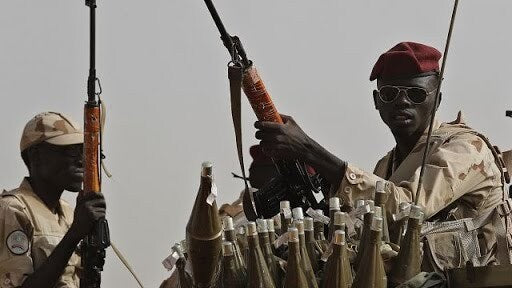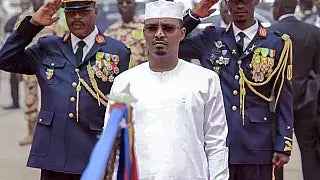
Sudan: El-Gezira massacre stirs fury – 124 dead in bloody Rapid Support Forces raid
As Sudan desperately struggles to keep its head above water in a devastating civil war, the El-Gezira region has been hit by an episode of unspeakable brutality. On Friday, the Rapid Support Forces (RSF), the paramilitary group accused of spreading terror across the country, launched a raid in what appears to be a campaign of repression against the local population. The toll is chilling: at least 124 civilians have been killed, leaving the country and the international community once again stunned by the escalation of this indiscriminate violence.
A premeditated massacre in Sudan's agricultural garden
El-Gezira, often called Sudan’s “breadbasket” for its agricultural wealth, has not been a major conflict zone until now. But this raid could mark a turning point in the Rapid Support Forces’ strategy. Since last April, Sudan has been plunged into a bloody war between the regular army, led by General Abdel Fattah al-Burhan, and the Rapid Support Forces, led by General Mohamed Hamdan Daglo, alias “Hemetti.” While the capital Khartoum is already a field of ruins, the spread of violence to relatively stable rural areas appears to be a new tactic to break civilian resistance.
Initial reports from the region indicate a coordinated attack, with shelling reducing buildings to dust and leaving streets strewn with bodies. The victims are mostly civilians, trapped by crossfire and targeted strikes. Witnesses describe the terror of residents forced to flee, often on foot, for lack of transport to escape the carnage. Some claim that the RSF deliberately targeted hospitals, schools and other civilian infrastructure in an all-out attack tactic.
Humanitarian chaos intensifies, international aid powerless
The human toll of this massacre only worsens a humanitarian crisis that is already reaching dramatic proportions. With nearly five million people displaced since the beginning of the conflict, international organizations are cornered and are trying to provide relief and assistance. But even these operations are compromised by the surrounding violence: the roads are controlled by the armed forces and militias, making access to the most devastated areas almost impossible.
UN reports indicate that famine and shortages of medicines are putting thousands of lives at risk. Yet neither the UN nor the African Union have yet succeeded in imposing a stable ceasefire between the warring parties. Attempts at mediation consistently fail in the face of mutual distrust and the obstinacy of both sides in seeking to impose themselves by force. The United States and Europe, which had mobilized for a diplomatic solution, are now struggling to make themselves heard in the midst of this chaos.
The situation seems all the more desperate as the FSR and the Sudanese army compete in cruelty in their operations. Allegations of war crimes are piling up against both factions. Testimonies and images of massacred civilians, burned villages and abused women are piling up, fueling a sense of urgency that international bodies are struggling to translate into concrete action.
The Spiral of Horror: A Civil War with No End in Sight
As eyes turn to El-Gezira, the international community is once again faced with a dilemma: how to act in a civil war where impunity seems total and the warring parties are deaf to calls for peace? Hemetti, head of the Rapid Support Forces, displays open disdain for calls for a truce, positioning himself as the liberator of a Sudan that he accuses of being betrayed by corrupt and autocratic elites. For his part, General Burhan has not hesitated to launch massive military operations in densely populated urban areas, resulting in the deaths of thousands of civilians.
The El-Gezira massacre could thus be just another episode in a long series of atrocities committed under the cover of war. For many observers, this civil war is tearing the country apart in a spiral of self-destruction from which it will be difficult to escape. The economic situation, already deplorable before the conflict, is now catastrophic, with destroyed infrastructure and markets paralyzed by violence and fear.
There are growing criticism of international inaction, pointing to political paralysis in the face of a seemingly intractable conflict. Foreign actors are accused of calculating their own geopolitical interests to the detriment of direct intervention. Yet without concrete help and firm pressure, Sudan could well sink deeper into the abyss as the forces involved continue their destructive struggle.



Leave a comment
This site is protected by hCaptcha and the hCaptcha Privacy Policy and Terms of Service apply.